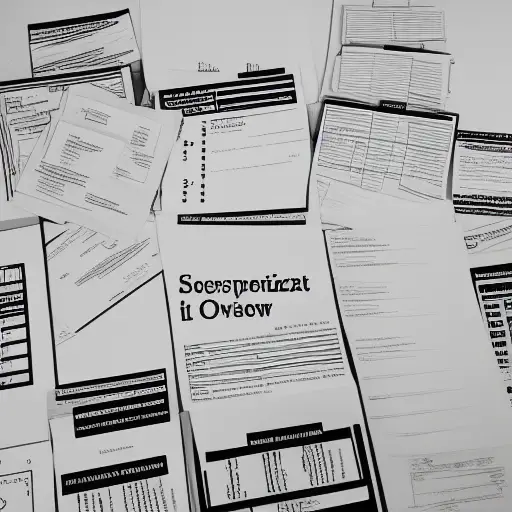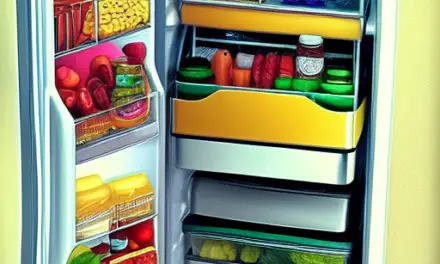There are many ways to organize household paperwork, including keeping a filing system that works for you. Bills should be separated into separate files for easy reference, and utilities and HOA notices should also be tracked separately. Other kinds of paperwork to organize include upcoming school events, refinancing options, and other documents that don’t require immediate attention. And don’t forget to tuck away old projects and memorable papers, too.
Using a filing system that works for you
Using a filing system that works for your household can be an efficient way to keep track of your paperwork. It should be easy to access, easy to maintain, and adaptable, so that you can add and remove files as needed. It should also be easy to label each file according to the information it contains.
The first step in organizing your household paperwork is to identify which pieces of paper should be kept and which should be thrown away. Generally speaking, it is best to sort documents by family member or category. For example, if you have a child, you can put their school information into separate folders. Likewise, if you have a pet, you can keep records of its health.
Once you have a complete list of all the paperwork, you can identify the types of files you want to file. Flip through the documents to identify the categories and note the subcategories, which will serve as folder headings. Every household is different, so it’s important to identify which categories best suit you. Some people prefer to file by person, while others prefer to file by type.
Once you have organized your papers by type, you can designate the main place where you keep them. Separate action and household files can then be categorized according to their purpose. Action files include items you need to act on, such as appointment reminders or invitations. Archive files, on the other hand, are documents you may need to access only occasionally.
Creating a home filing system can save you a lot of time and money. It can keep all of your important documents in one place and make life easier for you and your family. The system will also help you find documents you need quickly and effectively. A good home filing system will allow you to reduce the amount of clutter in your home.
One of the most common types of filing systems for the home is a filing cabinet. These are available in a variety of sizes, so it’s important to choose the right size for your household. Choosing too large a filing cabinet will make you collect more unnecessary paperwork. Therefore, it’s best to purchase a smaller cabinet to start. This way, you will have a better chance of choosing only important papers to store.
Using vertical space to organize paperwork
If you need a place to put your household paperwork, using wall-mount organizers can free up valuable floor space. Organizers are useful because they help you sort your paperwork based on activity. You can also use them to organize family photos, or to hang clipboards for posting messages. File cabinets can easily become cluttered with family photos and magazines. You can use attractive baskets for magazines and bins to keep reading materials easily accessible.
If you have a lot of household paperwork, you should avoid stacking papers, as this can make it difficult to find any particular document. Instead, stack papers in a way that allows you to easily flip through them. A hanging-file system, pocket folders, and standing storage containers are great options for using vertical space to organize household paperwork.
Keeping track of bills online
If you’re constantly receiving bills, it’s important to keep a copy of each one for your records. This will help you keep track of your spending and compare your payments to past ones. To keep track of your bills digitally, you can scan them and upload them to a cloud storage service. You can also create folders in your email to keep track of all the payments you make online.
Bills can get confusing, and keeping track of them can be exhausting. You don’t want to forget to pay a bill and have a serious financial consequence come from it. Online bill management tools can make bill organization easy and stress-free. You can set up recurring reminders to keep you on top of your bills. You can also use apps to make keeping track of bills easy and convenient.
Another way to organize bills is to use a budgeting app. This app can be connected to your checking account so you can see when your bills are due and how much you’ve spent. This app will also remind you when to pay certain bills. This is a great way to stay on top of your finances.
While you’re paying bills online, make sure to write down the confirmation number you receive so that you can quickly look them up later. Having the confirmation number available will prevent problems with your account in case something goes wrong. Also, try to pay your bills online automatically whenever you can – check your account statements frequently and review your payments.
While managing household finances can be overwhelming, having an organized filing system for all of your bills is the best way to keep track of essential papers. This includes physical documents as well as online documents. In addition to bills, you should also keep track of your utility bills, HOA notices, refinancing options, and other important documents. Then, you can print or scan the documents as needed.
Another way to organize your household paperwork is to create a command center. This command center can be a place to keep important documents, like checks and receipts. By using the command center for this purpose, you can make filing easier and more convenient. You can also create temporary containers for your bills, trash, and to-do lists.








